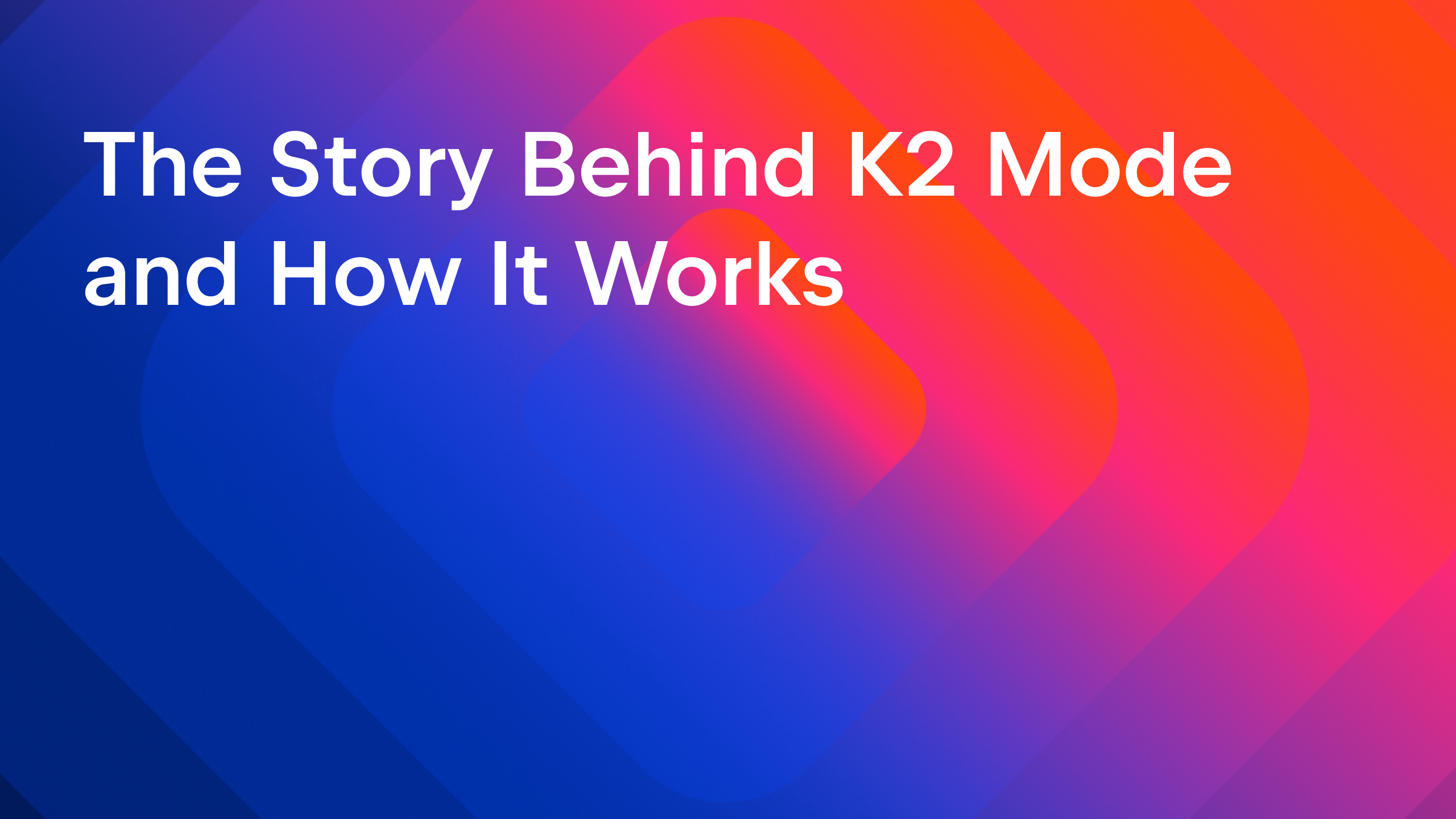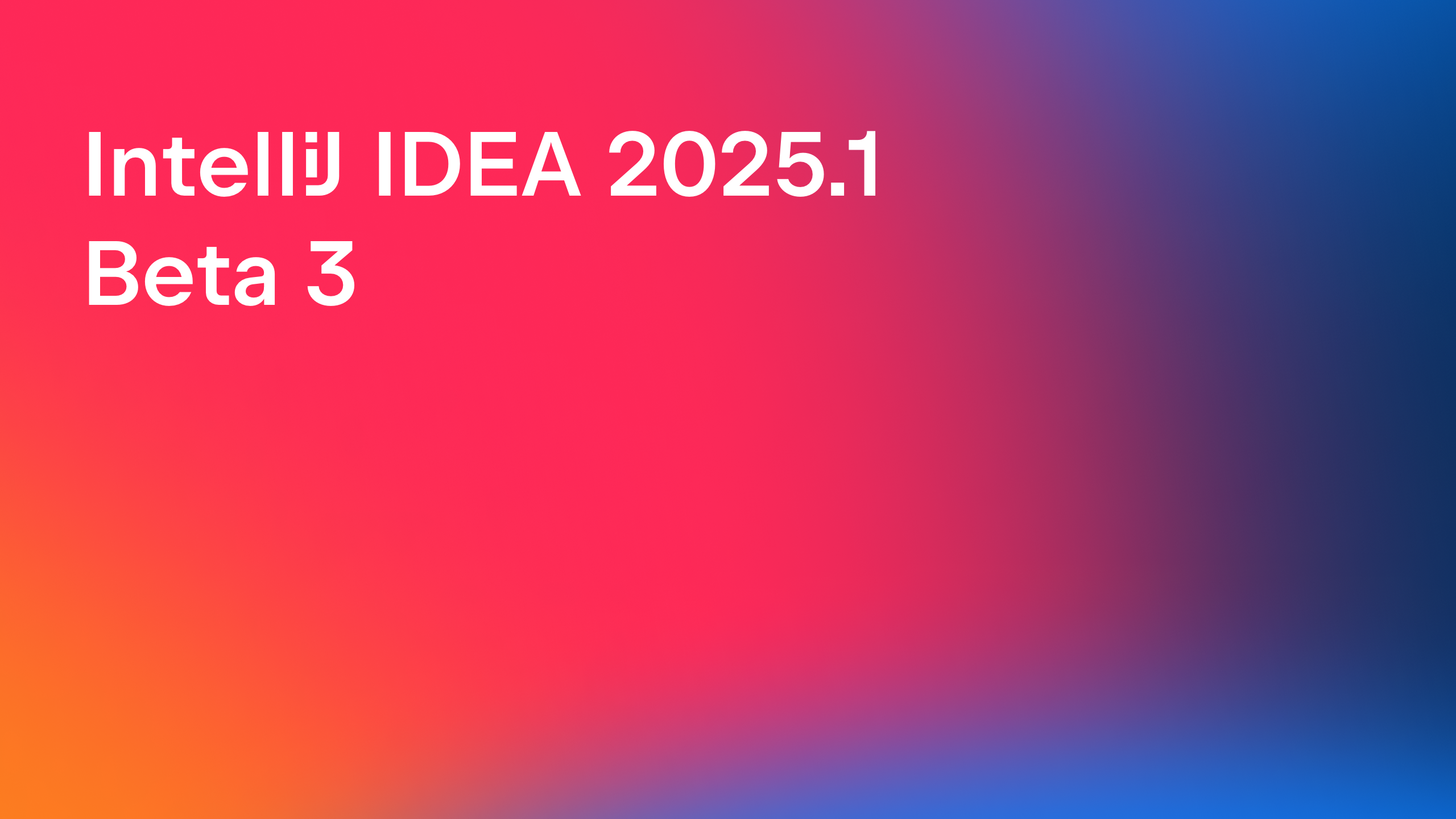IntelliJ IDEA
IntelliJ IDEA – the IDE for Professional Development in Java and Kotlin
IntelliJ IDEA 2024.1 Goes Beta!
The 2024.1 Beta version of IntelliJ IDEA has arrived!
You can get the latest build from our website, through the free Toolbox App, or via snaps for Ubuntu.

Download IntelliJ IDEA 2024.1 Beta
Our latest build integrates all of the significant updates introduced during the IntelliJ IDEA 2024.1 Early Access Program. Here’s a short recap of the new features aimed at enhancing various aspects of your development workflows:
- Support for Java 22 functionalities
- Full line code completion
- A revamped Terminal tool window
- Conditional statements coverage
- Sticky lines in the editor
- Earlier availability of IDE features during project indexing
- In-editor code reviews
- Enriched support for GitHub Actions
- Improved workflow for logs
- Inline breakpoints for multiple statements
- Opening speed boost for Maven projects
- Support for OpenRewrite
- WireMock server support
- And many more
To learn more about these and other improvements, check out the posts tagged under the IntelliJ IDEA 2024.1 EAP section on our blog.
Although the addition of new features has finished and the team is now refining those included in v2024.1, we still have updates to share. Take a closer look!
Java
Revamped Detected Conflicts dialog
In v2024.1, we’ve revamped the Detected Conflicts dialog to improve the user experience and readability. Now, the code context mirrors the editor, giving you clearer insight into conflicts. We’ve optimized text display, and the IDE now automatically saves window size adjustments for future use. We’ve also updated the buttons and their behavior to streamline the refactoring workflow. The dialog is now fully accessible via the keyboard, meaning that you can use shortcuts and arrows keys for seamless interaction.

Rename refactoring inlay hint
To make the renaming process easier and more intuitive, we’ve implemented a new inlay hint appearing atop the changed code element. To update all references to the new version within the codebase, you only need to click on the hint and confirm the change.

Kotlin
Official Kotlin code style propagated on all projects
Starting from version 2024.1, the IDE uniformly applies the official Kotlin style guide as the default option for all projects, unless explicitly specified otherwise. If your existing project utilizes an older code style without explicit configuration, the IDE will automatically switch to the Kotlin Coding Conventions code style and provide a notification to alert you of this change. To prevent any undesired formatting alterations, we recommend familiarizing yourself with this code style migration guide.

Static imports preserved on copy-pasting
In version 2024.1, we’ve introduced a long-awaited enhancement to the copy and paste functionality, particularly valuable when handling nested objects, enums, and Java static imports. The IDE now accurately preserves static imports, ensuring they are transferred exactly the same way as they appear in the source code.

Frameworks and technologies
Enhanced Terraform support
In the upcoming 2024.1 update, we’re introducing significant improvements in support for infrastructure as code development for Terraform, aimed at developers, site reliability engineers (SREs), and DevOps. This update includes a series of new features and enhancements to simplify the process of creating, managing, and scaling your infrastructure.
Suggestion to run terraform init
To initialize the working directory with Terraform code files, we must first run terraform init. This is often overlooked, leading to error messages from Terraform itself, as well as incomplete code autocompletion and only partial display of documentation. To avoid this, the IDE now explicitly suggests running terraform init.

Support for third-party providers from the Terraform Registry
IntelliJ IDEA now offers extended code completion capabilities for more than 3,900 third-party Terraform providers, making it easier for developers to write code efficiently. Additionally, you’ll find the latest documentation for each of these providers, along with their specific versions, directly within the IDE.

This allows you to explore new Terraform providers and learn their capabilities faster – all without leaving the IDE.

Terraform template language (tftpl) support
In our latest update, we’re excited to unveil support for Terraform’s template language (tftpl), enhancing your workflow with configuration files, scripts, or any program code, such as web server, network, or service configurations. Templating just got easier! Now, you can dynamically fill in values within your templates at runtime, streamlining the process of rendering templates for specific uses.
By default, files with the *.tftpl extension are recognized as plain text with templating capabilities. However, if your requirements are more specific, we’ve added the option to seamlessly integrate with your preferred programming language. Simply right-click the file, select Change plain text template to data language, and choose the language that matches your .tftpl files. This feature is designed to enhance your templating experience, making it more flexible and powerful than ever before.

Terraform’s template language not only supports variable templating and control flow elements, it also encompasses lists and maps, along with the ability to generate JSON and YAML formats.

Build tools
Support for Maven Shade Plugin renaming workflow
With the release of IntelliJ IDEA 2024.1, we’re adding long-awaited support for Maven Shade Plugin renaming. Now, IntelliJ IDEA is aware of the renaming workflow and seamlessly manages these scenarios to ensure accurate code highlighting and navigation when working with your shaded JAR and its dependencies.


Project Maven repositories in the Maven tool window
To enhance its accessibility, the list of Maven repositories alongside their indexing status is now displayed in the Maven tool window, instead of its previous location within Maven settings.

Access source files directly from the Quick Documentation popup
We’ve updated the Quick Documentation feature to easily download sources. Now, when you’re viewing documentation for a library or dependency and need to access its source code, you can easily do so with one press of the F1 key. The updated popup provides a direct link to download the required source files, streamlining your workflow.

Gradle version support update
Starting from this version, IntelliJ IDEA no longer supports projects using Gradle versions older than 4.5. This means that the IDE will not perform Gradle sync for projects with unsupported Gradle versions.
Version control systems
Visual indicators for pending GitHub updates
We’ve introduced visual indicators to hint about pending updates within your code review workflow. When there are changes requiring your attention, a blue dot badge will appear on the tool window icon. Additionally, unseen pull requests will be marked with a blue dot, ensuring you don’t miss updates in your code review process.

AI Assistant
Beginning with the Beta version of IntelliJ IDEA 2024.1, AI Assistant has been unbundled and is now available as a separate plugin. This change is driven by the need to offer greater flexibility and control over your various preferences and requirements, enabling you to choose if and when you’d like to use AI-powered technologies in your working environments.
That’s a wrap! For the full list of updates in the latest build, please refer to the release notes.
Our Early Access Program will be closing soon, so we encourage you to take your time testing out the new features and sharing your feedback with us. You can drop us a line in the comments below or reach out to us on X (formerly Twitter) – we’re always looking to benefit from your input. Finally, if you happen to spot any bugs, please report them using our issue tracker.
Stay tuned for more news next week!
Happy developing!
Subscribe to IntelliJ IDEA Blog updates








